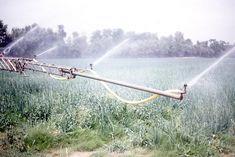
A report on crop spraying and health risks has come under criticism from scientists.
The study was carried out by the Royal Commission on Environmental Pollution and recommended a five metre no-spray zone between fields and residential homes.
However, the Advisory Committee on Pesticides described the measure as “arbitary” and a “disproportionate” response to scientific uncertainty.
The ACP was asked to respond to the RCEP report by Lord Bach, minister for sustainable farming and food, and will be used to inform the Defra response.
Professor David Coggon, chair of the ACP when the response was written, said the committee strongly disagreed with the recommendation of placing a five metre buffer zone alongside residential property to protect against possible adverse health effects.
"We agree there is scientific uncertainty, but we think a buffer zone is arbitrary and a disproportionate response to the uncertainty," he told the BBC.
The ACP said the report failed to consider the wide margins of safety already built into the current regulatory system.
Professor Coggon said the ACP acknowledged there needed to be improvements in the scientific knowledge of the harmful effects of crop spraying.
"It is not a question that everything is clear cut and we don't need to do any more research because we know all the answers. We are absolutely in agreement with the Royal Commissions on that," he said.
But he also said the ACP disagreed with the proposed interim precautionary measures.
"Our position has always been, if on the risk assessment you don't think there is adequate protection for bystanders, then you don't impose a buffer zone to protect people, you just don't allow the use of the pesticide,” he added.
Defra said it would consider the ACP’s views and prepare its own response which is expected to be ready by the summer.
However the ACP’s comments have been welcomed by the Crop Protection Association.
Chief executive of the Crop Protection Association, Peter Sanguinetti, said: ‘Our products are safe when used correctly. The crop protection industry is strictly regulated and actively promotes safe use. Decisions should always be based on sound science.”